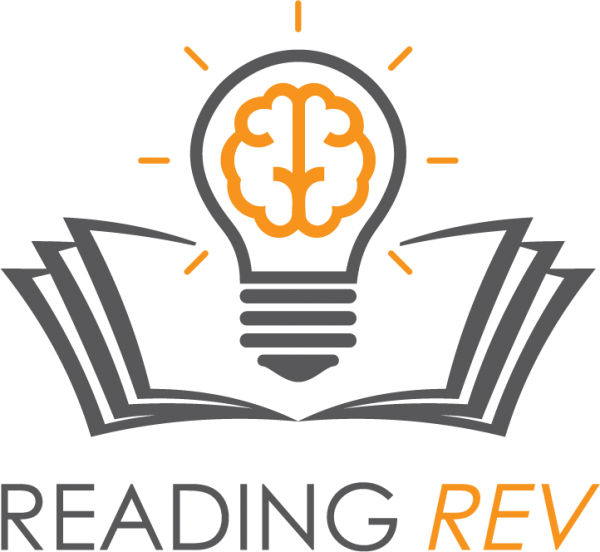Let Them Listen: Why Audiobooks Belong in Every Reader’s Toolkit
Audiobooks are not a shortcut or a substitute—they’re a powerful support. For intermediate students, especially those with dyslexia or other reading challenges, audiobooks can be a game-changer. Research from the Journal of Neuroscience (2022) has shown that listening to audiobooks activates nearly the same language-processing areas of the brain as reading print—supporting the idea that listening is indeed a legitimate form of reading. In fact, a 2023 study published in Reading Research Quarterly found that students with dyslexia who engaged in structured reading instruction and listened to audiobooks made greater gains in comprehension and vocabulary than those using print alone. It’s important to clarify: listening to audiobooks is not cheating—it’s a way of accessing content, vocabulary, and language structures without the barrier of decoding. When used alongside print and explicit instruction, audiobooks can offer a powerful bridge to confidence, comprehension, and a lifelong love of reading.
Benefits of Audiobooks for Dyslexic (ALL) Students
1. Enhanced Comprehension and Fluency
Audiobooks can significantly improve reading comprehension and fluency in students with dyslexia. By listening to the text, students can focus on understanding the content without the barrier of decoding written words. This approach allows them to engage with more complex texts and build vocabulary effectively.
2. Increased Accessibility and Engagement
Audiobooks provide an accessible format for students who struggle with traditional reading. They enable learners to enjoy literature and academic content, fostering a love for reading and learning. This accessibility can lead to increased confidence and participation in classroom discussions.
3. Support for Multisensory Learning
Combining audiobooks with printed texts supports multisensory learning, which is beneficial for students with dyslexia. This method reinforces word recognition and pronunciation, aiding in the development of reading skills.
4. Alignment with Individualized Education Plans (IEPs)
Audiobooks can be integrated into IEPs as an assistive technology tool, providing tailored support that meets individual student needs. This inclusion ensures that students with dyslexia receive appropriate accommodations to succeed academically.
Recommended Audiobook Resources
For educators and parents seeking quality audiobooks for intermediate students, the following resources offer a variety of options:
Learning Ally: A nonprofit organization providing a vast library of human-narrated audiobooks designed for students with learning disabilities.
Book Share: A nonprofit initiative by Benetech that offers an extensive online library of over one million titles in accessible formats for individuals with print disabilities, such as dyslexia, visual impairments, and physical disabilities that hinder traditional reading.Thanks to funding from the U.S. Department of Education's Office of Special Education Programs (OSEP), Bookshare is free for all qualified U.S. students with a documented print disability.
Libby: A user-friendly app developed by OverDrive that allows library cardholders to borrow and enjoy digital content—such as audiobooks, eBooks, and magazines—on various devices, including smartphones, tablets, and computers for FREE.
Audible: A leading audiobook service owned by Amazon that anyone can join. It offers a vast digital library of audiobooks, podcasts, original shows, and other audio content. Audible is designed for anyone and has over 600,000 titles. It is a membership and costs about $15 a month.
Favorite AudioBook Recommendations for Intermediate Readers
(Linked to Audible, but not a sponsor link- get it free if you can! These are just a few of the greats, but match your student or child’s interest.)
Restart by Gordon Korman
Why it’s amazing: This compelling story follows a boy who wakes up with amnesia and must rediscover who he is. Noah Galvin’s energetic and nuanced narration captures the emotional journey and humor perfectly, making it a powerful listen about second chances and self-discovery.
Hatchet by Gary Paulsen Why it’s amazing: The thrilling survival story of a boy stranded in the wilderness comes alive with Peter Coyote’s intense and immersive narration that hooks listeners from start to finish.
Matilda by Roald Dahl Why it’s amazing: Roald Dahl’s witty and clever story about a brilliant girl with magical powers is brought to life by Kate Winslet’s expressive and charming narration that adds extra magic to every word.
Esperanza Rising by Pam Muñoz Ryan Why it’s amazing: This historical novel tells the powerful story of Esperanza, a wealthy Mexican girl who must flee to the U.S. during the Great Depression and learn to rebuild her life as a farm laborer. Trini Alvarado’s narration is rich, expressive, and perfectly captures both the emotional tone and cultural authenticity of the story. Spanish words and phrases are beautifully pronounced, enhancing the immersive experience.
Impossible Creatures by Katherine Rundell
Why it’s amazing: This spellbinding fantasy adventure introduces a hidden archipelago where mythical creatures still roam. Rundell's lush, imaginative world-building is packed with griffins, manticores, and heartfelt friendships. Samuel West’s masterful narration brings each character—and creature—to vivid life, combining wonder, danger, and deep emotion in a way that completely hooks listeners.
Conclusion
Incorporating audiobooks into the educational experience of intermediate students, particularly those with dyslexia, can lead to improved comprehension, increased engagement, and overall academic success. By leveraging these resources, educators and parents can provide supportive and effective learning environments that cater to diverse student needs.
Summer Is the Perfect Time to Start with Audiobooks!
Summer is the ideal time to introduce kids to the joy of audiobooks. With the pressures of school on pause, listening to stories feels more like entertainment than education — yet it still delivers powerful benefits. Audiobooks build vocabulary, strengthen comprehension, and keep our kids’ minds engaged while they’re relaxing, traveling, or even doing chores. It’s a fun, screen-free way to keep literacy growing all summer long!





